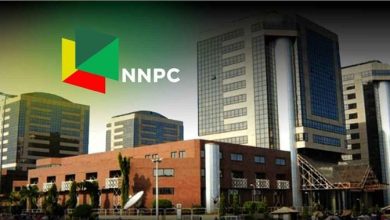NISO, Huawei Launch Nationwide Grid Digitization Project to Boost Electricity Reliability
NISO partners with Huawei to launch real-time digital upgrade for Nigeria’s national power grid.
New tools aim to improve reliability, boost regional ties, and build trust in electricity delivery.
The Nigerian Independent System Operator (NISO) has unveiled a major digital transformation initiative aimed at enhancing the performance and resilience of the country’s electricity grid. The project, launched in collaboration with global technology company Huawei, promises to improve real-time monitoring, coordination, and management of Nigeria’s national grid through state-of-the-art digital infrastructure.
At a brand unveiling ceremony held in Abuja on Tuesday, NISO’s Managing Director, Abdu Muhammed, announced that the new digitisation programme would usher in a new era of proactive grid management for Nigeria. He explained that the initiative will deploy advanced tools such as smart data analytics, real-time visibility platforms, and a modern Supervisory Control and Data Acquisition/Energy Management System (SCADA/EMS).
“This is not just a technical upgrade it’s a transformation in how we manage electricity in Nigeria,” Muhammed said. “The ability to monitor the grid in real-time and respond swiftly to issues will allow us to prevent crises rather than merely react to them. This marks a shift from reactive to proactive management.”
He stressed that NISO, now operating as an independent entity in line with the Electricity Act of 2023, will execute its duties professionally and without bias. He reaffirmed the agency’s commitment to fairness and transparency in the electricity supply industry.
“We are not a subsidiary of any other agency. We are a principal actor in the power sector, and our mission is to serve all stakeholders Distribution Companies, Generation Companies, eligible consumers, and regional partners with equal commitment,” he stated.
Muhammed revealed that NISO’s new digital infrastructure would not only strengthen grid coordination within Nigeria but also reinforce the country’s role in the broader West African electricity network. He pointed to NISO’s increasing engagement with regional organizations such as the West African Power Pool (WAPP) as evidence of Nigeria’s evolving influence in cross-border power planning.
“In the past, we may have observed regional developments from the sidelines. Today, we are active participants, working with our neighbors to plan a shared electricity future,” he said.
He also gave updates on the progress of the SCADA/EMS deployment, noting that field inspections had already taken place at key substations in Gwagwalada and Katampe. Muhammed emphasized that NISO’s leadership prefers direct engagement on project sites over relying solely on reports.
“Our leadership doesn’t stay in the boardroom and guess. We visit project locations, interact with engineers, and confirm that actual progress matches what is documented. This hands-on approach ensures accountability,” he explained.
As part of NISO’s mission to establish itself as a credible and neutral player in the electricity market, the agency is positioning itself as a guardian of fairness across the value chain. Muhammed underscored that NISO’s role extends beyond technical operations to fostering trust in the sector.
“Every institution has a defining moment. For us at NISO, this is it. We are no longer just maintaining a grid we are leading a transformation,” he declared. “We make decisions without bias. We operate transparently. And most importantly, we are here to deliver electricity solutions that improve the lives of Nigerians.”
The MD concluded by highlighting that NISO’s emergence as a fully independent operator brings both responsibility and opportunity, stating, “The future of power supply in Nigeria depends on trust and building that trust starts with us. Together, we are NISO. Together, we will deliver.”



